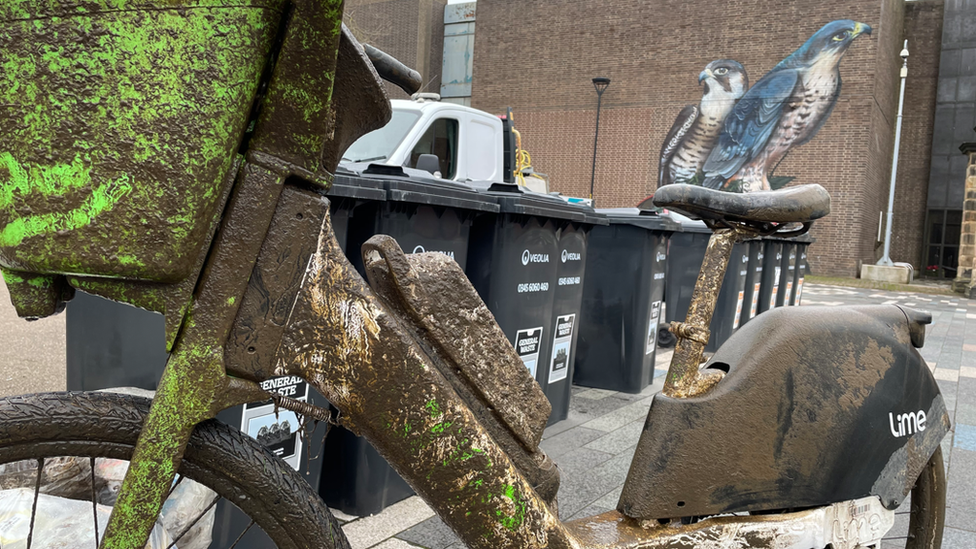New bubble barrier aims to clear more river plastic
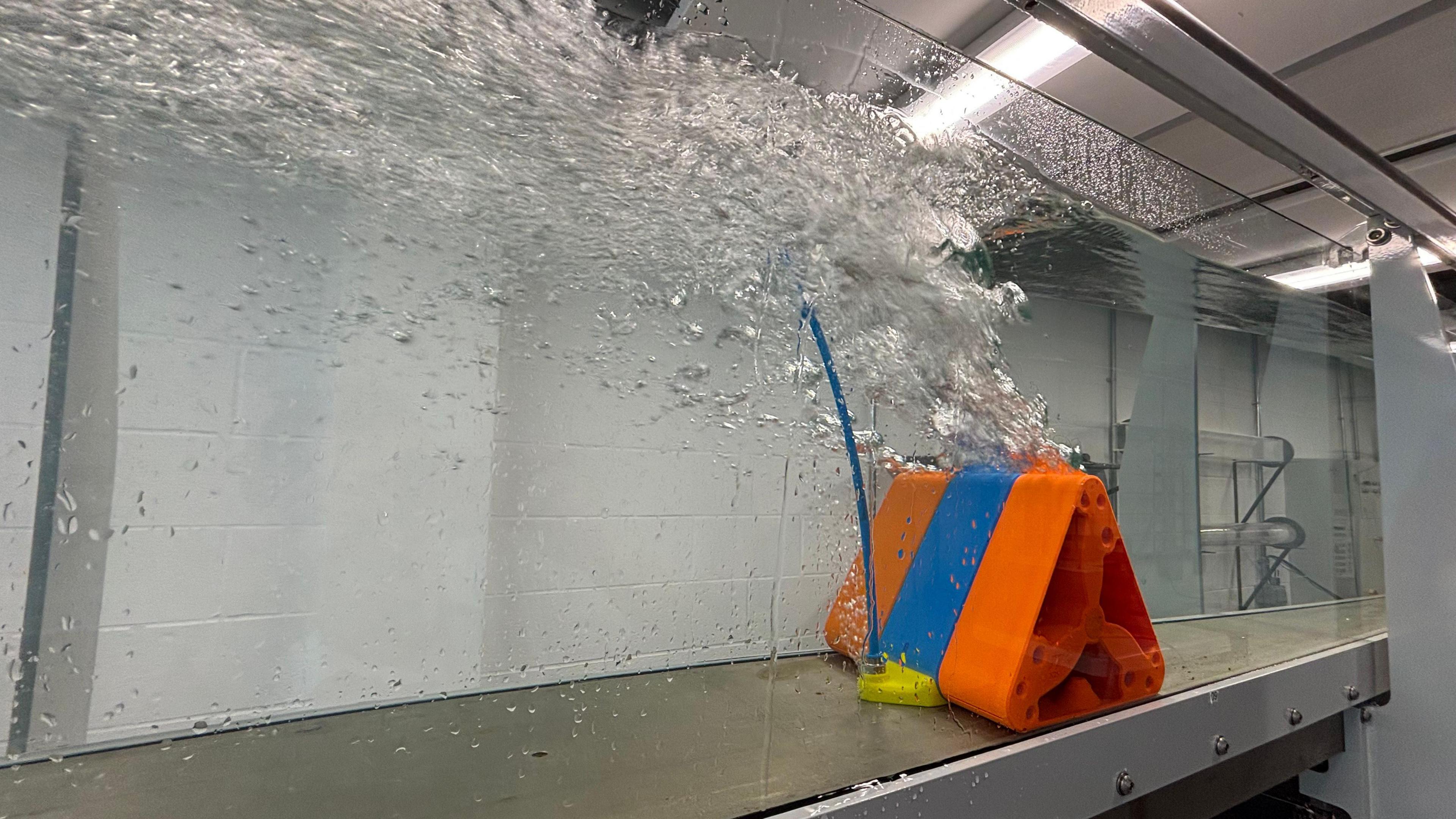
The bubble barrier and ramp system has been developed with the University of Derby
- Published
"We hear people all the time saying 'I can't see any plastic, this river is clean'. It's not really true, because 85% of the plastic, we can't see. It's underwater."
Think Ocean founder Hugo Valdes-Vera says he is committed to cleansing water courses and stopping plastic from reaching the sea.
The Derby-based community interest company (CIC) is behind a new method of clearing plastic from the bottom of rivers, where it is usually difficult to collect.
Working with the University of Derby, it has developed a new type of "bubble barrier".
As the name suggests, the barrier emits bubbles, which force plastic towards the surface, where it can then be collected by a specially-converted catamaran moored by the riverbank.
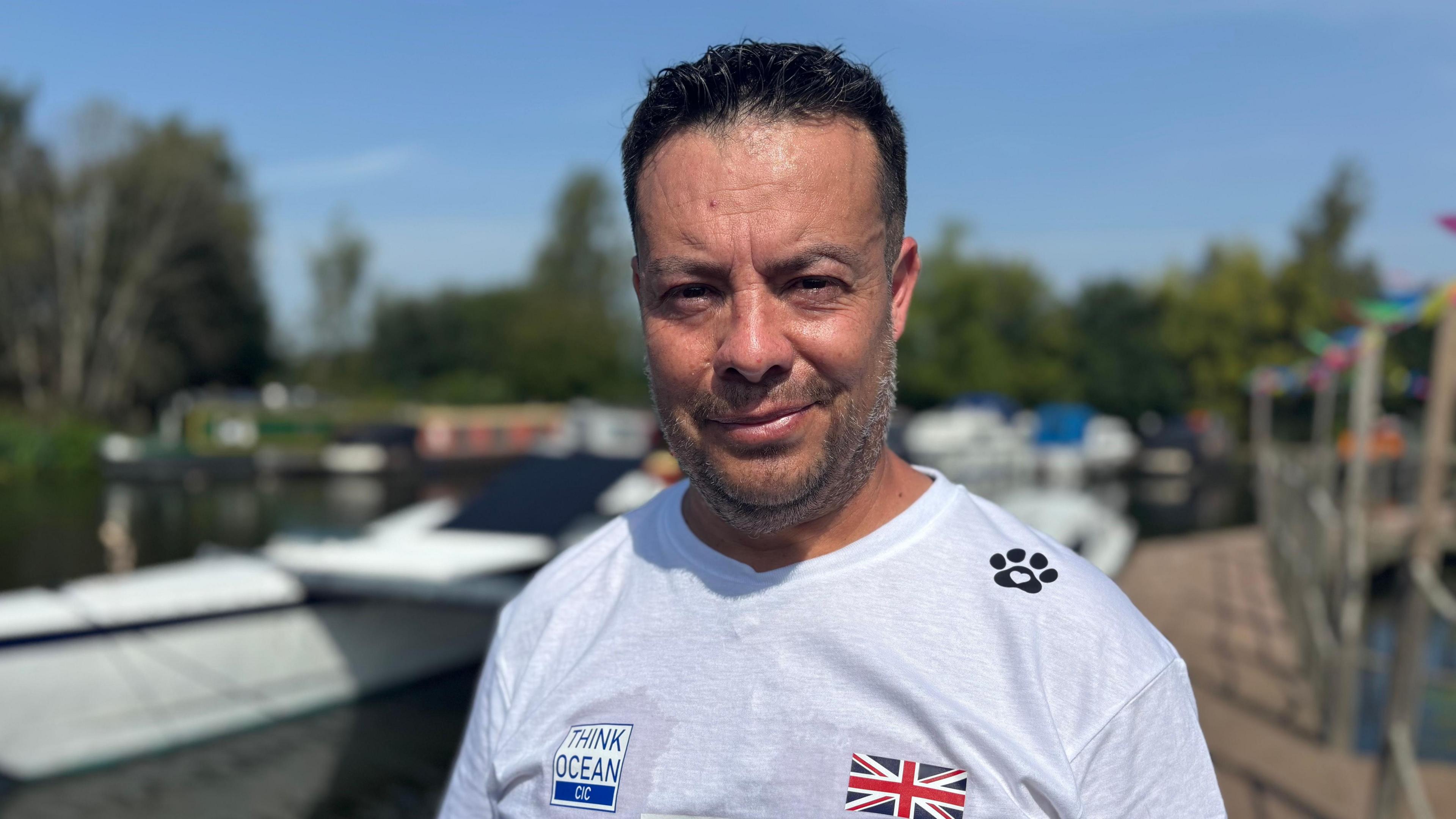
Hugo Valdes-Vera hopes the bubble barrier will be deployed across Europe
Bubble barriers have been deployed in other countries, but by adding a ramp system, Mr Valdes-Vera said they could increase the amount of plastic collected.
In one test, he said the team were able to gather up to five tonnes a day, but he noted this was after a storm when there was more plastic in the river than usual.
The system is designed to allow small fish to pass through a separation in the ramp, while the air pressure is controlled so larger fish can swim through the bubbles.
Prof Christopher Sansom, the university's zero carbon theme lead, said while the system was new, the concept was not.
"The idea of removing plastic waste by finding some way of elevating it from the river bed or in suspension in the water up to the surface is fairly obvious, I suppose," he said.
"What is difficult is in adjusting the science and getting all the conditions just right for that to happen economically and efficiently."
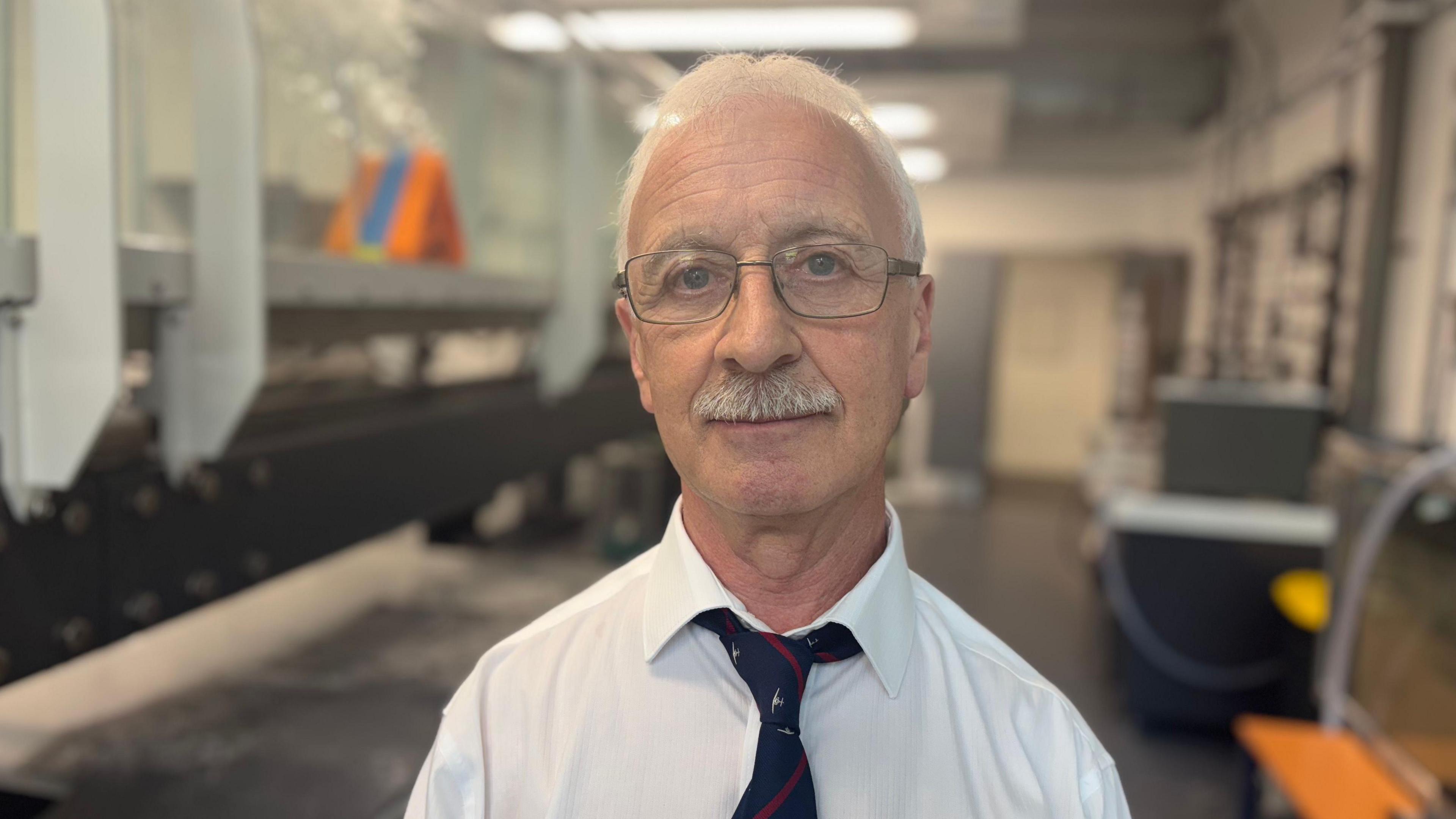
Prof Christopher Sansom says it is "almost impossible" to get plastic out of water once it reaches the ocean
Prof Sansom added the barrier could be scaled up to cover much larger areas.
"You could cover the whole of the riverbed with the bubble screen, you could have a ramp 10, 20, 30 metres wide. There's no reason you can't cover a whole river this way," he said.
"The water in a big river is moving at something like two to three thousand cubic metres a second, that's a lot of water going through this bubble screen and you're picking up all the microplastic from that volume of water."
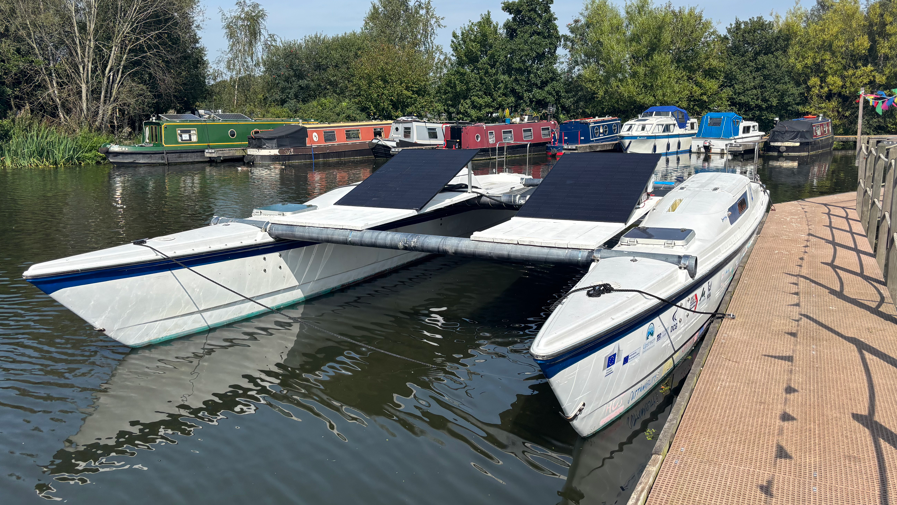
The catamaran is currently moored in Derby but is due to be moved to Serbia for further tests
Think Ocean has received funding from the European Union's Horizon research scheme.
Later this year, the bubble barrier and catamaran - currently stationed in Derby - are due to be move to Novi Sad in Serbia, where they will continue testing in the Danube river.
If proven successful, Mr Valdes-Vera said the European Commission wanted to build 42 more vessels to be placed in rivers across the continent, but he also hoped they could be deployed in the UK.
"If we deploy seven of these vessels in the seven most polluted rivers in the UK, we can become the first country on the planet to lock plastic inland," he said.
Get in touch
Tell us which stories we should cover in Derby
Follow BBC Derby on Facebook, external, on X, external, or on Instagram, external. Send your story ideas to eastmidsnews@bbc.co.uk, external or via WhatsApp, external on 0808 100 2210.
Related topics
- Published13 August 2024
- Published21 March 2024
